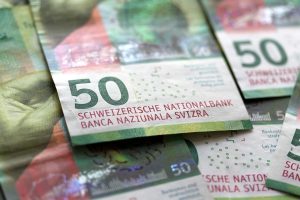Safe haven currencies play an essential role in the global financial system. They maintain or increase their value during economic uncertainties and provide a refuge for investors. As markets fluctuate due to political instability, financial crises or natural disasters, they become highly sought after.
Investors prefer these currencies to reduce risk and safeguard their assets. Their stability stems from strong economies, robust financial systems and consistent monetary policies. Understanding their role is vital for traders and investors aiming to navigate volatile markets effectively.

What Makes a Currency a Safe Haven?
A safe haven currency is defined by its ability to withstand economic shocks. They typically belong to nations with stable economies, low inflation rates and strong governance. Their perceived safety ensures they remain in demand during market downturns. Some features that define them include:
- Economic stability: Backed by a resilient and diversified economy.
- Global trust: Widely accepted in international trade and finance.
- Liquidity: Easily traded without significant loss in value.
Popular Safe Haven Currencies
- US dollar (USD): The USD’s reliability is linked to the strength of the US economy and its widespread use in global trade.
- Swiss franc (CHF): Known for Switzerland’s neutrality and robust financial systems, the CHF offers security to investors.
- Japanese yen (JPY): The Yen benefits from Japan’s strong current account surplus and domestic investor preferences during crises.
These currencies are often used as benchmarks to measure market confidence. Their movements reflect broader investor sentiment and serve as indicators of global stability.
Role of Safe Haven Currencies in Financial Markets
Safe haven currencies act as a shield against economic disruptions. During periods of high uncertainty, investors tend to move their funds from riskier assets into them. This flight stabilises portfolios and reduces potential losses.
For traders, they offer opportunities to hedge risks. As market trends shift, the demand for safe havens often results in price fluctuations. Understanding these patterns can help traders capitalise on market movements while minimising exposure to risks.
Tips to Trade Safe Haven Currencies
- Monitor economic indicators: Keep an eye on global events, central bank policies and market sentiment.
- Diversify investments: Avoid overreliance on a single currency by diversifying holdings.
- Leverage volatility: Use periods of heightened demand to optimise trading positions.
Final Thoughts
Safe haven currencies are indispensable in times of financial uncertainty. They provide a sense of security and help investors preserve their wealth. Understanding their features and roles is sure to help traders navigate the complexities of global markets more confidently.
These currencies remain an essential tool for mitigating risks in unpredictable economic environments. Their importance highlights the need for careful planning and informed decision-making in financial strategies.
